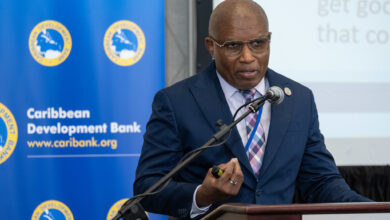(CARICOM Secretariat, Turkeyen, Greater Georgetown Guyana) Haiti is expected to participate in at least one component of the Caribbean Single Market and Economy, (CSME) by the first quarter of 2009.
The fundamental components of the CSME are free movement of goods and services, free movement of people and skills, and the right of establishment of business entities within the Community. Haiti’s participation in the CSME will increase the size of CARICOM’s market under the CSME to an unprecedented 15 million people.
Ambassador Earl Stephen Huntley, Director of the CARICOM Representation Office in Haiti told the opening ceremony of the Third Meeting of the CARICOM Commission on Youth Development (CCYD) on Monday morning (8 December 2008) that Haiti was now in the process of revising and developing legislative frameworks to facilitate its participation in Free Trade in Goods under the CSME. He noted that by January 2009 bureau of standards would be established in Haiti as the country prepared to participate in its first segment of the CSME.
Approximately 40 delegates including Commissioners, consultants and representatives of the University of the West Indies, development agencies, Departments of youth affairs, and the CARICOM Youth Ambassador Corps are meeting at the Hotel Montana in Port au Prince, to discuss preliminary research findings and develop a plan of action to complete the Commission’s Report. The recommendations contained in the Final Report, will be discussed by the special Meeting of the Council for Human and Social Development (COHSOD) in April 2009, prior to its submission to the CARICOM Conference of Heads of Government in July 2009.
That Haiti was hosting the CCYD meeting, Ambassador Huntley asserted, was a symbol of Haiti’s growing involvement and active participation in the Community.
He added that a comprehensive plan was being implemented by the CARICOM Secretariat in partnership with the Canadian Inter-Development Agency (CIDA) which would support Haiti’s development, re-integration in the Community and full participation in the CSME.
As part of this development programme, the CARICOM Secretariat is also helping to build capacity through training in several aspects of Haiti’s public sector to strengthen the country’s ability to participate fully in the CSME.
Ambassador Huntley pointed out that the CARICOM Office in Haiti would also spearhead the implementation of a public education programme that should not only assist Haitians in understanding the Community better, but also to assist the other CARICOM Member States in understanding the reality of Haiti, thus dispelling negative perceptions about Haiti.
He said further, that youth were at the heart of the public education campaign, hence the need for CARICOM Youth Commissioners and Youth Ambassadors present at the meeting to be strong and resilient information advocates for Haiti, taking a positive message to their peers in the Region and helping to counter the negative images projected in the international media about Haiti.
“We are one and must work together to build the ties of brotherhood between Haiti and the rest of the Region; ties that history had severed …” Ambassador Huntley concluded.




